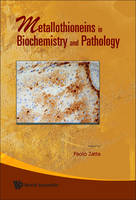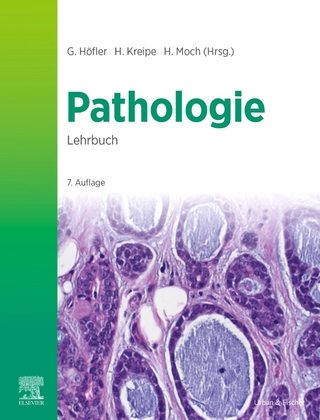
Metallothioneins In Biochemistry And Pathology
Seiten
2008
World Scientific Publishing Co Pte Ltd (Verlag)
978-981-277-893-2 (ISBN)
World Scientific Publishing Co Pte Ltd (Verlag)
978-981-277-893-2 (ISBN)
- Titel z.Zt. nicht lieferbar
- Versandkostenfrei
- Auch auf Rechnung
- Artikel merken
Metallothioneins (MTs) represent a family of proteins characterized by high, heavy metal content [mainly Cu(II) and Zn(II)], and by an unusual cysteine abundance. This book explores the role of MTs in the field of neurological disorders (brain inflammation, Alzheimers and prion diseases, autism and ALS), cardiology, and oncology.
Metallothioneins (MTs) represent a large family of proteins characterized by high heavy metal content (mainly CuII and ZnII) and by an unusual cysteine abundance. They have a powerful protective function in all animal tissues, due most likely to their properties as free radical scavengers protecting against oxidative damage. Moreover, the presence and overexpression of MTs in various pathological conditions, such as metal dyshomeostasis, cell proliferation, neurological disorders, and chemotherapy and radiotherapy resistance, could be used as an important prognostic marker, as a histopathological diagnostic tool, and to follow specific pharmacological treatments.This important book explores the role of MTs in the field of neurological disorders (brain inflammation, Alzheimer's and prion diseases, autism, ALS, etc.), cardiology (cardiomyopathy, atherosclerosis), and oncology (melanoma, prostate and breast cancer), through authoritative contributions and a description of basic biochemical information and paradigmatic pathological events.
Metallothioneins (MTs) represent a large family of proteins characterized by high heavy metal content (mainly CuII and ZnII) and by an unusual cysteine abundance. They have a powerful protective function in all animal tissues, due most likely to their properties as free radical scavengers protecting against oxidative damage. Moreover, the presence and overexpression of MTs in various pathological conditions, such as metal dyshomeostasis, cell proliferation, neurological disorders, and chemotherapy and radiotherapy resistance, could be used as an important prognostic marker, as a histopathological diagnostic tool, and to follow specific pharmacological treatments.This important book explores the role of MTs in the field of neurological disorders (brain inflammation, Alzheimer's and prion diseases, autism, ALS, etc.), cardiology (cardiomyopathy, atherosclerosis), and oncology (melanoma, prostate and breast cancer), through authoritative contributions and a description of basic biochemical information and paradigmatic pathological events.
Metallothioneins and Neurological Disorders: Chemical Structure of Metallothionein (M Vasak); MT and Oxidative Stress (W Maret); MT in Neurodegenerative Diseases (P Zatta); MT in Brain Inflammation (J Hidalgo & M Penkowa); MT and Autism (M Aschner); MT and Neuronal Injury (R S Chung & A West); Metallothionein in Oncology: MT in Oncology (S E Theocharis); MT and Melanoma (G Weinlich); MT and Brest Cancer (B-H Bay); MT and Prostate Cancer (C Balaji); MT and Colorectal Tumors (N Aoyama); Metallothionein in Cardiopathy: Metallothionein in Cardiomyopathy (L Cai); Metallothionein and Atherosclerosis (E Moccheggiani).
| Erscheint lt. Verlag | 22.10.2008 |
|---|---|
| Verlagsort | Singapore |
| Sprache | englisch |
| Themenwelt | Studium ► 2. Studienabschnitt (Klinik) ► Pathologie |
| Naturwissenschaften ► Biologie ► Biochemie | |
| ISBN-10 | 981-277-893-4 / 9812778934 |
| ISBN-13 | 978-981-277-893-2 / 9789812778932 |
| Zustand | Neuware |
| Haben Sie eine Frage zum Produkt? |
Mehr entdecken
aus dem Bereich
aus dem Bereich
Klinisch-pathologische Übersichtskarten
Buch | Hardcover (2023)
Springer (Verlag)
CHF 48,95


